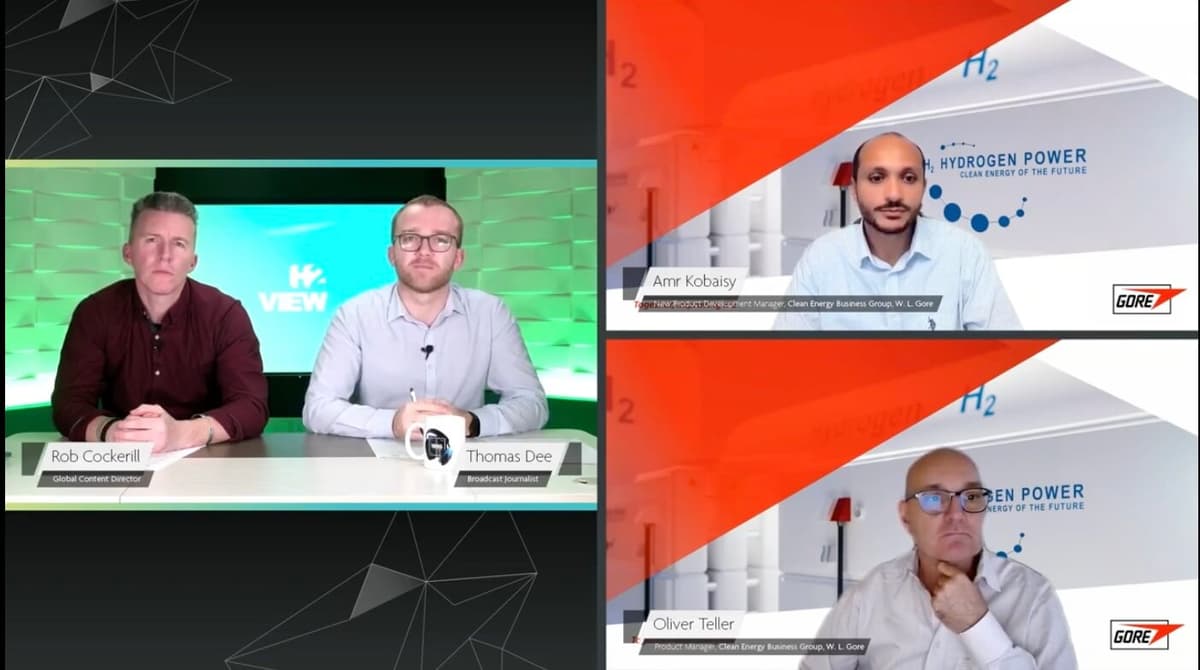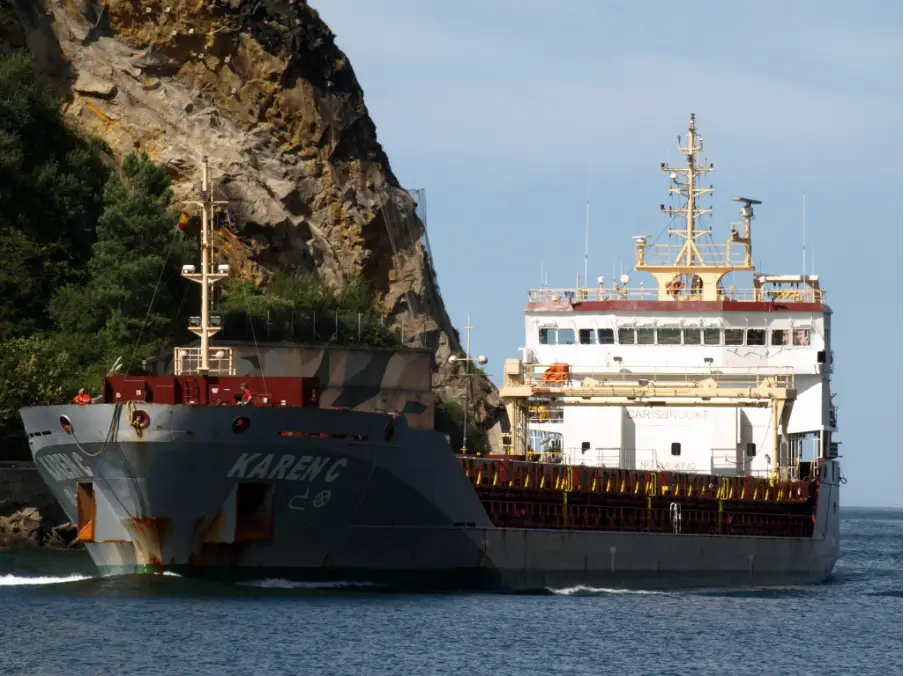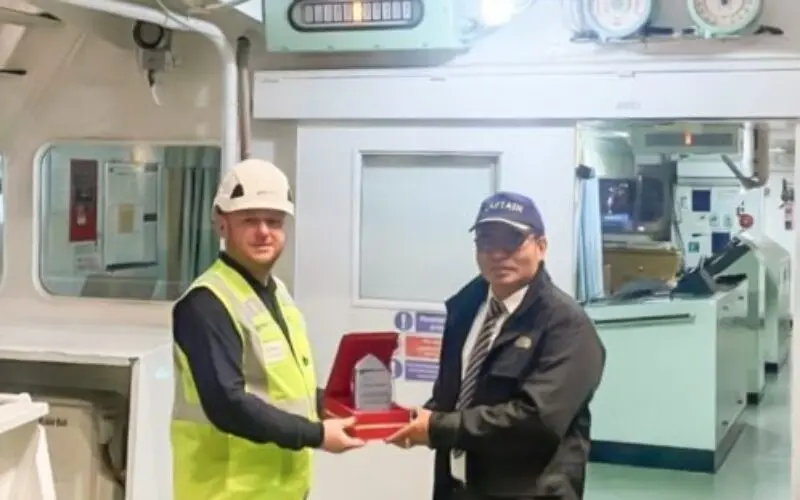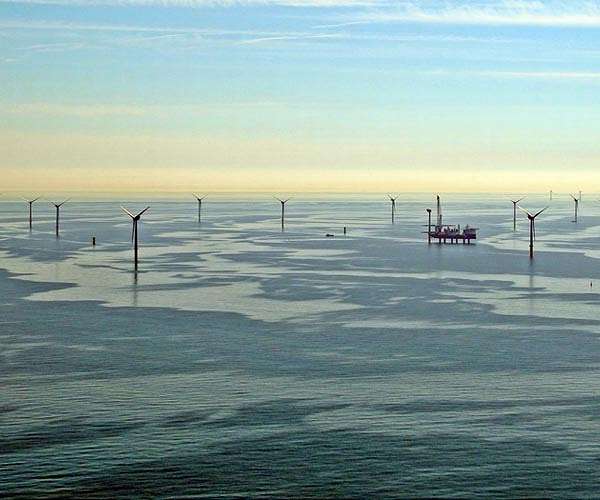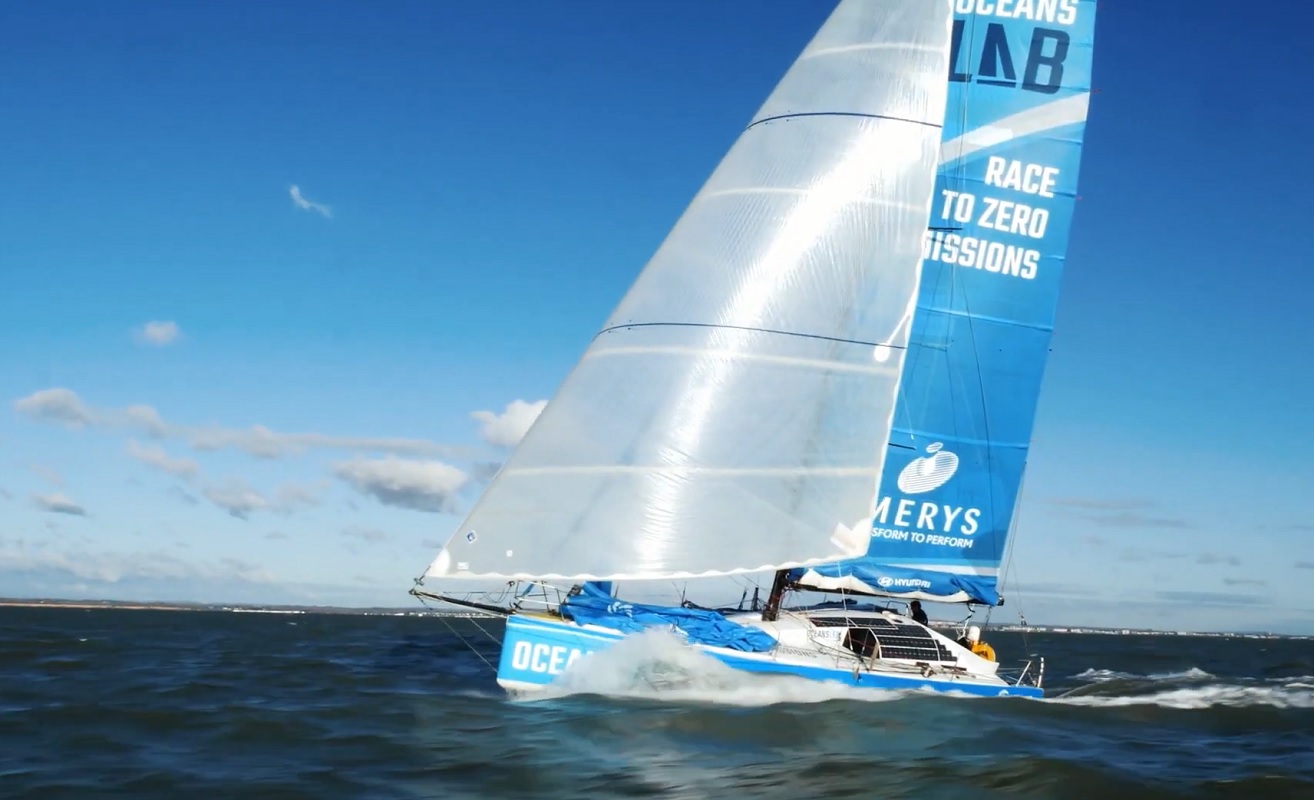
The 60-foot craft will be tested to see if it can stand up to the demands of the elite world of yacht racing.
OceansLab, a clean technology accelerator, has announced that it is planning to place hydrogen fuel cell tech in the spotlight in high profile yacht races, to help draw attention to broader maritime industry decarbonization options.
The company intends to test an H2-powered 60-foot yacht under extreme racing conditions.
While hydrogen fuel cell passenger cars have yet to take off at any widescale level, H2’s potential has most certainly been noticed in other areas, including in marine shipping and, to a smaller extent, other marine vessels. OceansLab is aiming to demonstrate just how much this tech has to offer, by testing the tech against the demanding conditions of yacht racing. It plans to focus on high-profile events to draw as much attention as possible.
The yacht it will be racing conforms to all the International Monohull Open Class Association (IMOCA) standards. Since 1998, IMOCA has been recognized as the official manager of the rules and standards for the 60-foot open monohull yacht class. According to IMOCA, its purpose is to “to develop the fleet of monohulls and offer its skippers an attractive and coherent sports programme,” with a particular focus on sustainability.
“Central to IMOCA’s concerns as it evolves is how to constantly respect the environment better,” said the organization. “Renewable energies are not merely viewed as a resource, but also a key element in terms of performance.”
OceansLab has high expectations for the performance and potential of the hydrogen fuel cell yacht.
Last January, OceansLab expressed in a press release the high level expectation it held for the new yacht, saying that “…this new IMOCA will see a unique and innovative ocean racing campaign with the clear aim of demonstrating scalable clean technologies within the maritime sector.”
“IMOCA race boats are the most innovative and extreme of ocean-going vessels. They are an ideal platform to showcase vital clean technologies, such as hydrogen fuel cells, and prove their durability in the harshest of ocean environments,” added noted racing skipper Phil Sharp, co-founder and CTO of OceansLab.
The company’s hydrogen fuel cell technology is on track for launch at the 2023 IMOCA Globe series.
According to OceansLab, the yacht’s inaugural race will be in the IMOCA Globe Series, more specifically, the Transat Jacques Vabre, which is scheduled for October 2023. It is also slated to compete in a qualifier for the 2024 Vendée Globe.
Why H2 on a sailing ship?
Though it is easy to wonder what benefit a hydrogen fuel cell would offer a racing yacht permitted exclusively to use high-tech sails and wind power, there is a reason for additional power. IMOCA has taken great care to address such issues.
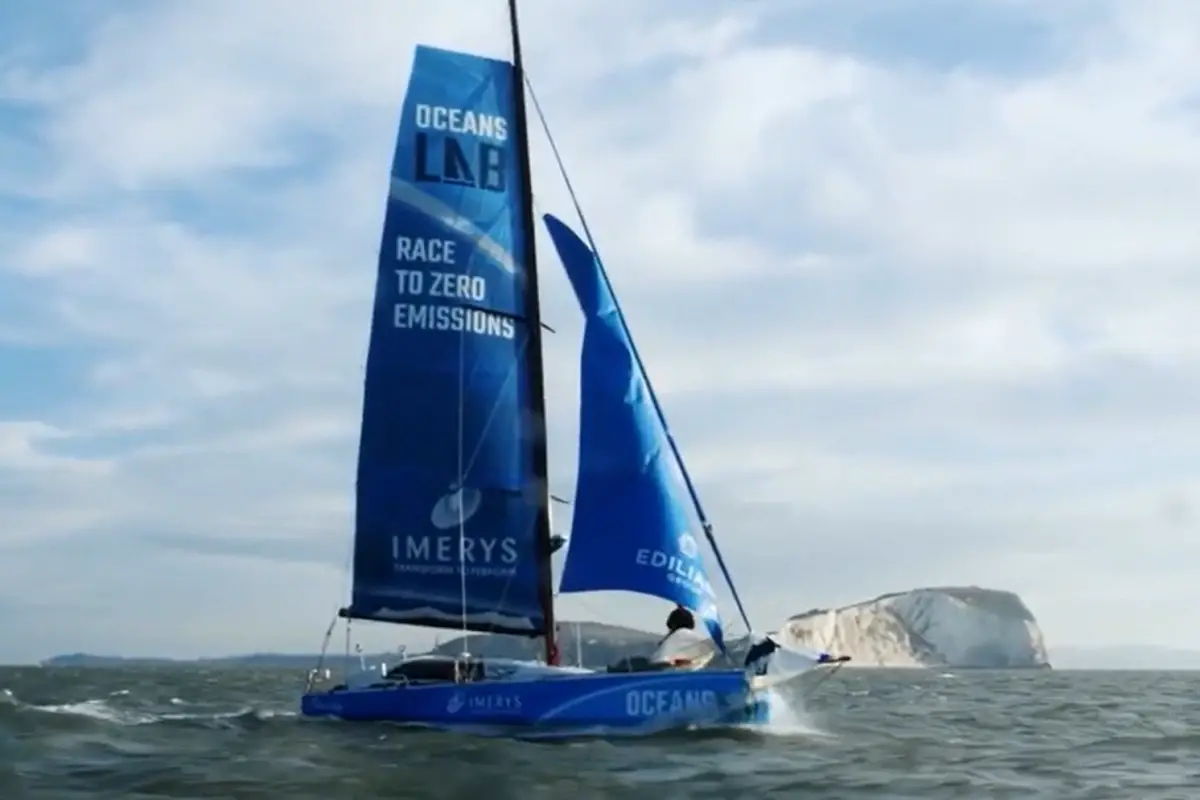
While racing, IMOCA yachts must use only wind power and sails for their propulsion. That said, most have motors and propellors – just as the OceansLab yacht does. The propellers are sealed during the races so that they will not provide propulsion.
That said, when the vessels aren’t racing, added propulsion is typically necessary. For instance, the vessel’s hydrogen fuel cell propulsion will be used for maneuvering around harbors or to respond to an emergency at sea.
Beyond propulsion, other shipboard operations aboard IMOCA yachts require energy. In fact, the energy they require must be self-sustaining for quite some time – often for days at a time.
“…to eat, drink, study the weather or ensure that everything aboard the boat is working smoothly, the skipper has to generate his own electricity and manage his reserves down to the smallest detail,” explained IMOCA.
 Conventional yachts have a diesel generator to serve this purpose. That said, more sustainable alternatives are being developed, such as turbines dragged underwater by the vessel, wind turbines, or solar panels.
Conventional yachts have a diesel generator to serve this purpose. That said, more sustainable alternatives are being developed, such as turbines dragged underwater by the vessel, wind turbines, or solar panels.
In this case, the hydrogen fuel cell will be able to provide ship-board energy adequate to serve this purpose, including a growing amount of high-tech maritime gear being installed in yachts beyond the typical systems for sustaining the crew throughout a race.
Ready to test your knowledge on the most abundant element in the universe? Take our fun and engaging Hydrogen Quiz now!

